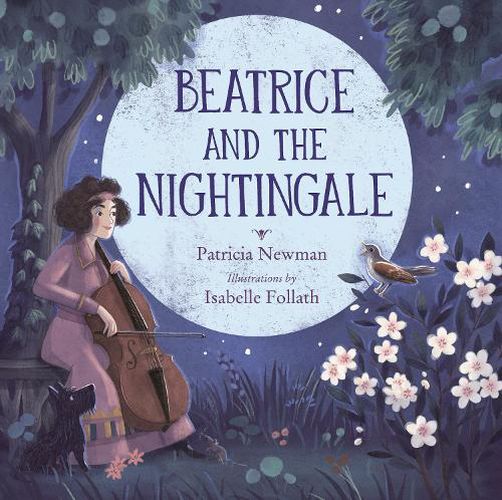Readings Newsletter
Become a Readings Member to make your shopping experience even easier.
Sign in or sign up for free!
You’re not far away from qualifying for FREE standard shipping within Australia
You’ve qualified for FREE standard shipping within Australia
The cart is loading…






In 1924, an audience of more than one million listeners across the world listened in amazement to the first live radio broadcast of a nightingale accompanying the young cellist Beatrice Harrison.
On May 19, 1924, a duet between a young cellist and a male nightingale was broadcast across the British Commonwealth as far away as Canada, India, and Australia to over one million listeners. It was an unprecedented collective experience made possible by the invention of the radio and a new microphone that picked up sounds of nature.
Beatrice Harrison, considered one of the greatest cellists of the 20th century and a musical prodigy, was that cellist. This biography describes Beatrice's singular dedication to music from a very early age.
At the age of eighteen months, Beatrice attended her first concert. Catching sight of a cello and hearing it for the first time, she was bewitched and immediately began asking to play it. She got her first cello when she was about eight years old. Later, her parents moved the family to Germany so Beatrice could study with one of the best cello teachers. There, at age seventeen, she was awarded a prestigious prize, the youngest artist and only cellist to win at that time.
Back in the UK, the family moved to Surrey, England and Beatrice's career flourished.
One evening while Beatrice was practicing her cello in the garden, she heard a creature repeating the music she was playing. It turned out to be a nightingale. She played many nights with the bird and was completely enthralled. Wanting to share the experience, she convinced the head of the newly formed BBC to take a chance on a live broadcast from her garden. The resulting duet was a smashing success and Beatrice received more than 50,000 letters in response. Overnight, she became known as the Lady of the Nightingales and for twelve years thereafter the cellist and the bird were broadcast annually to BBC listeners from her garden in Surrey.
$9.00 standard shipping within Australia
FREE standard shipping within Australia for orders over $100.00
Express & International shipping calculated at checkout
Stock availability can be subject to change without notice. We recommend calling the shop or contacting our online team to check availability of low stock items. Please see our Shopping Online page for more details.
In 1924, an audience of more than one million listeners across the world listened in amazement to the first live radio broadcast of a nightingale accompanying the young cellist Beatrice Harrison.
On May 19, 1924, a duet between a young cellist and a male nightingale was broadcast across the British Commonwealth as far away as Canada, India, and Australia to over one million listeners. It was an unprecedented collective experience made possible by the invention of the radio and a new microphone that picked up sounds of nature.
Beatrice Harrison, considered one of the greatest cellists of the 20th century and a musical prodigy, was that cellist. This biography describes Beatrice's singular dedication to music from a very early age.
At the age of eighteen months, Beatrice attended her first concert. Catching sight of a cello and hearing it for the first time, she was bewitched and immediately began asking to play it. She got her first cello when she was about eight years old. Later, her parents moved the family to Germany so Beatrice could study with one of the best cello teachers. There, at age seventeen, she was awarded a prestigious prize, the youngest artist and only cellist to win at that time.
Back in the UK, the family moved to Surrey, England and Beatrice's career flourished.
One evening while Beatrice was practicing her cello in the garden, she heard a creature repeating the music she was playing. It turned out to be a nightingale. She played many nights with the bird and was completely enthralled. Wanting to share the experience, she convinced the head of the newly formed BBC to take a chance on a live broadcast from her garden. The resulting duet was a smashing success and Beatrice received more than 50,000 letters in response. Overnight, she became known as the Lady of the Nightingales and for twelve years thereafter the cellist and the bird were broadcast annually to BBC listeners from her garden in Surrey.